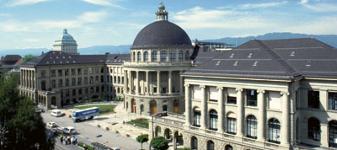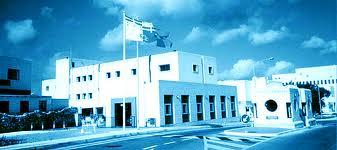Personal Motivation
Some may wonder why this website should be edited by a Swiss living in a country with green borders only and no direct access to the Mediterranean. There are reasons. I spent the last three years of my academic career in Malta witnessing firsthand the various aspects of blue border migration. That was before the Arab Spring but, given my background in international politics, it impressed me no end. When 2011 came around I decided to follow events more closely, abroad and at home. It is a fact that thousands of migrants and refugees seeking asylum in our country have crossed the Mediterranean. And, in 2008, Switzerland became an associate member of the Schengen area. Although not in the EU, the country is integrated when it comes to handling cross-border mobility. Our responsibilities, as a result, have widened - and often extend to the blue waters of the Mediterranean. The Swiss Minister of the Interior attends EU Council meetings, Swiss border guards work for Frontex in various capacities. Some are at headquarters in Warsaw but others are active in the field, including 'hotspots' in Italy and Greece.
Migratory Dynamics
As mentioned, I started this website in 2011 with the advent of the Arab Spring and a focus on the Central Mediterranean. The reason was simple: Most migrants reaching Europe left from Libya and landed in Italy. The flow was constant and, at times, made world headlines. It was the case in early October 2013 when around 360 migrants died in a tragic accident close to the coast of Lampedusa. As a consequence the Italian government stepped up its SAR activities and launched 'Mare Nostrum', a massive maritime operation that, unlike the Guardia Costiera and the Guardia di Finanza, was run by the navy and involved the use of large amphibious war ships. The action was impressive. A year later, and to ease Italy's burden, the EU started Operation 'Triton'.
Since most disembarkations continued to take place at Sicilian ports the problems associated with migration continued to have a distinctly Italian character. That changed in 2015 when around a million boat people crossed the waters separating Turkey and the Greek islands. Most of them fled from war-torn countries like Syria, Irak and Afghanistan. Within a few months Europe was confronted with a new set of problems, at the shores of Greece, along the Balkan route and at national borders. Germany felt the pressure most. The focus was now on the Eastern Mediterranean. But not for long. 180'000 migrants landed in Italy in 2016, and 120'000 in 2017. Spain, too, registered an increasing number of arrivals. The European discourse widened, Brussels felt the pressure - and the language became truly political.
Maritime & Political Events
As a result of the new situation I decided, in 2015, to change the make-up of this website.The presentation is still chronological but the focus is on maritime and political events. As in the past, the issues typical of maritime events are embarkation, vessels used, equipment, accidents, search and rescue (SAR) operations, victims and disembarkation. By political events I mean the reactions and actions undertaken by national, regional and global actors, including NGOs. Relevant information about the politics of countries along the southern and eastern rim of the Mediterranean is covered as well. The conflict in Libya remains the most salient example, but other developments are important, too.
Increasingly the emphasis is also on European politics, on individual states and, of course, on the European Union. The problems confronted are multiple. Border management, both maritime and continental, is a major issue. Differently put, the EU has to find new ways to organize the interplay of internal and external borders. Add to this the common organization of disembarkation, the redefinition of the Dublin First Country rule, the efficient handling of asylum applications, the difficult issue of repatriation and, finally, the relocation of accepted refugees. Many of the points touch matters of national sovereignty, thereby going to the heart of politics. Matteo Salvini's performance is an example. It is true that for a year he managed to tighten the external maritime borders of Italy and to enforce relocation but his populist-nationalist style hurt European solidarity and integration. Although the EU has recently taken steps to gradually build a 'coalition of the willing' it will take time to arrive at effective solutions.
Editor
Jürg Martin GABRIEL
Professor Emeritus
Swiss Federal Institute of Technology (ETHZ)
Zurich, Switzerland

Affiliation
Mediterranean Academy of Diplomatic Studies (MEDAC)
University of Malta
Vice-Chairman of the Board 2008-2018
Director 2002-2005

